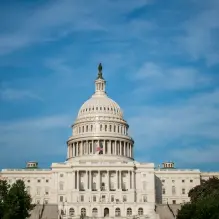- By Eddie Suarez
Last week the House Committee on Oversight and Reform sent letters to four regulatory agencies: the Department of the Treasury, the Federal Trade Commission, the Commodity Futures Trading Commission, and the Securities and Exchange Commission, requesting information and documents relating to their efforts to safeguard consumers against cryptocurrency-related fraud. Similar letters were sent to five digital asset exchanges: Coinbase, FTX, Binance.US, Kraken and KuCoin.
In the letters, the committee is requesting that the exchanges produce documents showing efforts to “identify, investigate, and remove or flag potentially fraudulent digital assets or accounts.” The letters also appear to be interested in efforts made by the exchanges to vet digital assets prior to listing them. The letter requests that the exchanges submit their responses by September 12, 2022.
We have recently seen an uptick in both regulatory action and criminal investigations in the digital assets space. As we noted in earlier articles, in July of 2022, the Department of Justice announced the guilty plea of the CEO of Titanium Blockchain Infrastructure Services (TBIS) in a $21 million cryptocurrency fraud scheme. According to the Department of Justice’s press release, TBIS failed to register its ICO with the Securities and Exchange Commission. This came on the heels of the Securities and Exchange Commission and the US Attorney’s Office for the Southern District of New York announcing the commencement of insider trading charges against Ishan Wahi, a former Coinbase product manager, his brother, and a friend. The charges stem from allegations that Wahi tipped off his brother about certain crypto assets that were about to be made available for trading on the Coinbase platform. Coinbase is the largest cryptocurrency trading platform in the United States, and, as a result, a crypto asset’s inclusion on the platform generally results in an increase in price. According to the SEC’s press release, the defendants purchased at least 25 crypto assets, nine of which are considered securities, and then sold them shortly after the announcement, yielding significant profits. https://suarezlawfirm.com/news-and-blog/sec-and-federal-prosecutors-bring-first-crypto-insider-trading-case/
This letter from a congressional committee signals the government’s ongoing interest and the potential for increased legislative and regulatory action. There is no doubt that a more comprehensive approach to digital assets is necessary. As noted by Congressman Raja Krishnamoorthi, Chair of the Subcommittee on Economic and Consumer Policy, “without clear definition and guidance, agencies will continue their infighting and will be unable to implement consumer investor protections related to cryptocurrencies and the exchanges on which they are traded.” While the Congressman’s comments have some merit, perhaps, more importantly, the regulatory agency infighting and lack of guidance he references will deter legitimate investors from operating in this space and potentially subject them to unwelcomed, unnecessary, and burdensome scrutiny.


